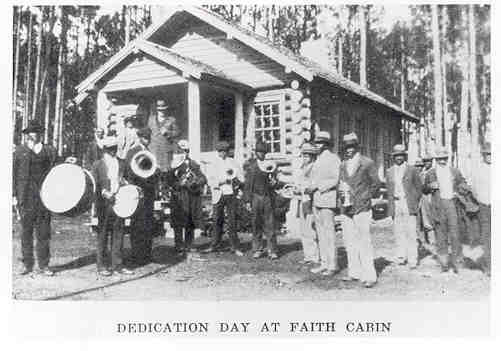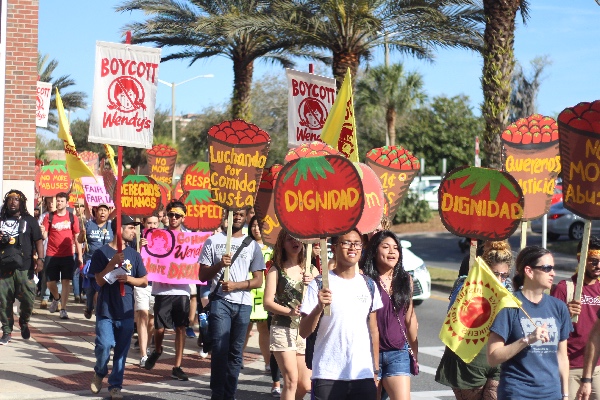From Laurin Manning at the Coastal Conservation League.
Category Archives: Uncategorized
Antarctica at Risk of Runaway Melting, Scientists Discover
April declared “Month of Outrage” in national Wendy’s Boycott!
Outrage over explosive Harper’s article connecting Wendy’s to infamous Mexican tomato supplier prompts farmworkers, consumers to call for month of action to kick off national boycott…
And so was born the Month of Outrage.
Faith Cabin Libraries

USC School of Library and Information Science:
Voluntary groups formed to provide Blacks with access to reading materials in response to the near total neglect by officials in county and state government. The Faith Cabin Libraries movement, for example, left a remarkable and far-reaching legacy thanks to the efforts of its founder, Willie Lee Buffington. Inspired by Euriah Simpkins (a Black school teacher in Saluda County), the White mill worker used the mail to solicit reading materials for local Black schools.
Faith Cabin Library – Seneca, South Carolina
Facing South
College of Charleston Events Jan. 19 & 20
On Tuesday, January 19th Professor Sarah Haley from UCLA will give a lecture at 6pm in RSS 235 [the old library] on “The Carceral Life of Gender.”
Event Description:
In the late-nineteenth and early-twentieth centuries, imprisoned black women faced wrenching forms of gendered racial terror and economic exploitation on chain gangs. Professor Sarah Haley will deliver a lecture on January 19 based on her groundbreaking new book about imprisoned black women’s brutalization in convict labor systems. Continue reading College of Charleston Events Jan. 19 & 20
67 Countries the U.S. Is Obliged to Go to War For
“Thanks to NATO, ANZUS, OAS, and bilateral agreements, the U.S. has promised 67 countries protection. Here’s a look at the list included in Beckley’s paper:”
The Co-op that Changed the South
It was a small cooperative store on a little-known island off the coast of South Carolina. During the harshest days of the civil rights struggle, embattled black leaders came through its doors seeking inspiration. Among the legendary leaders who visited the co-op were Ralph Abernathy, Dorothy Cotton, Conrad Brown, Fannie Lou Hamer, Martin Luther King Jr., John Lewis, Bernice Reagon, Cleveland Sellers, Kwame Ture (Stokely Carmichael), Andrew Young, Hosea Williams, and many others.
The co-op was called the Progressive Club. Johns Island is one of the Sea Islands, home to the unique Gullah people who had retained a lot of their African cultural heritage. In the 1940s, Johns Island was remote and a nine-hour ferry ride to Charleston, S.C. After WWII, bridges slowly began to connect Johns Island to the mainland.



 Download PDF
Download PDF